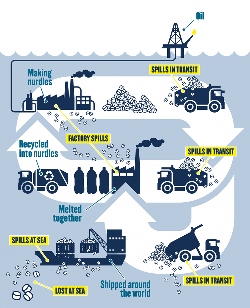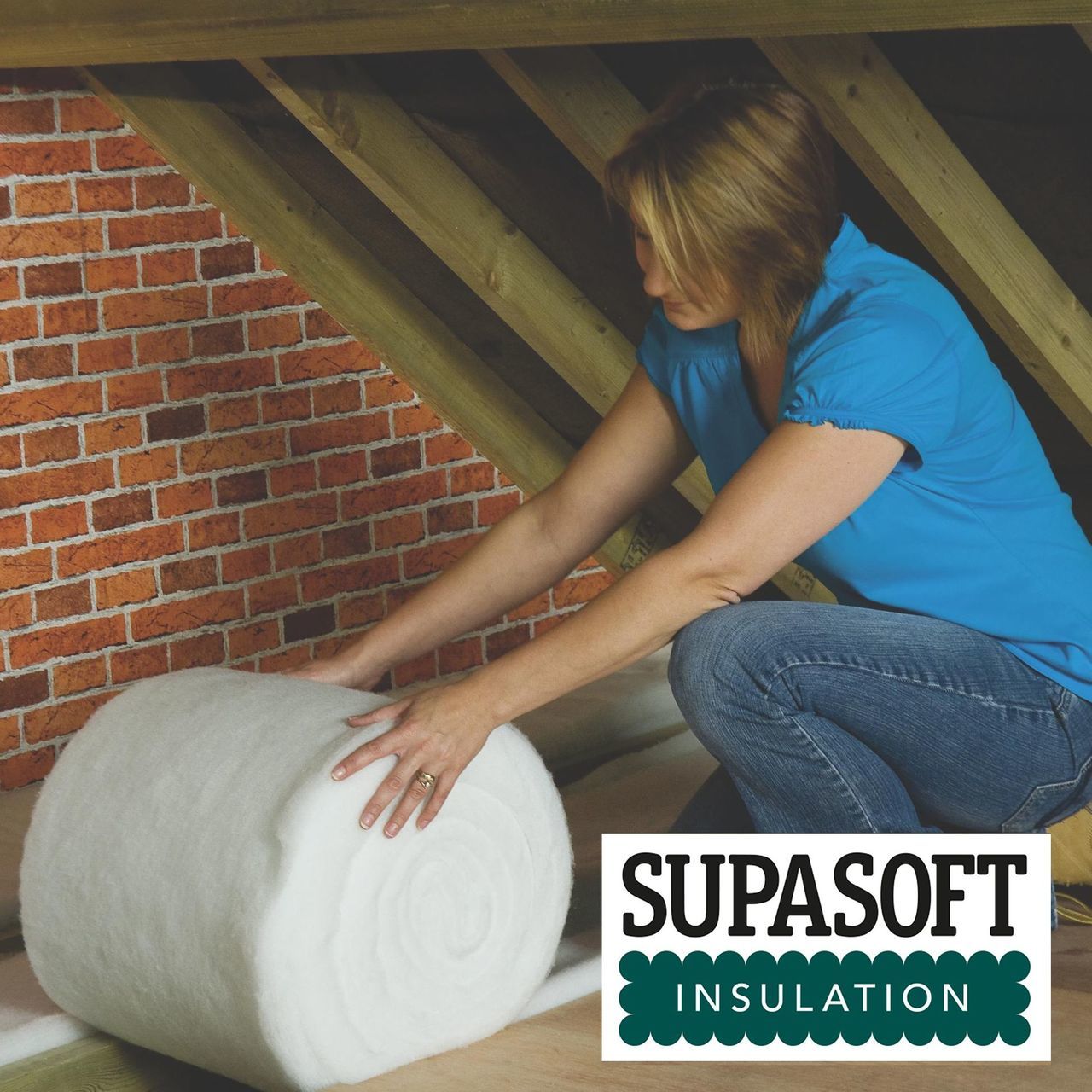5 reasons to choose SupaSoft recycled plastic insulation
Posted by Celtic Sustainables on 31st Aug 2021
- It’s made of recycled plastic bottles*
- Great insulation value (U Value)**
- It’s non itch loft insulation
- It’s soft, easy to handle and contains no harmful chemicals
- It’s manufactured in the UK
* Did you know that our SupaSoft Insulation is made of recycled plastic bottles! It takes an average of 12,000 waste plastic bottles to produce enough SupaSoft to insulate a typical loft.
Plastic bottles made of single use plastic is in the news a lot nowadays. You may have already switched to a refillable bottle for your cold drinks on the go.
Of course single use plastic bottles can be recycled and therefore if you always put them into the recycling bin they can’t be a problem, right?
Problems with recycling plastics part 1 - Nurdles
Each time plastics are recycled they are made into “nurdles”. Nurdles are little plastic pellets between 2 and 5mm in size. Plastic in nurdle form is the easiest way to transport plastic around from the recycling facility to the factories that will make them into the next product. While plastics are nurdles they don’t take up very much space at all.
Nurdles could be handled up to 5 times before they are made into a new product. Each time they are loaded into a different vehicle or container there is a risk of spills. There are also risks of spills at the factories or in transit either at sea or on the road.
According to a report from FIDRA up to 53 billion nurdles are lost to the environment each year through accidental spillage. This equates to cutting up and littering up to 88 million plastic bottles each year! If nurdles are not spilled at sea or near the sea they are spilled on or near roads. Road spills are also a problem because nurdles are light enough to be blown into our drains, gulleys and watercourses and of course they also float so during they can also be carried by rain into the drains and are carried that way into rivers and the sea.
The plastics industry has acknowledged nurdle spillages as an environmental problem and have set up a voluntary initiative to help address it. Operation Clean Sweep was set up 25 years ago to encourage businesses within the plastic industry to keep nurdles out of the environment.
Problems with recycling plastics part 2 - Downcycling
You would be forgiven for thinking that plastics, like those used to make plastic bottles, can be recycled infinitely – they usually imprinted with a recycling symbol after all (PET 1 for plastic bottles). However many plastics, including PET plastics from plastic bottles, can only be recycled up to around seven times (and more usually only once or twice) before the material is considered too degraded (plastics are made up of long chemical chains and each time you recycle it you break the chains – which degrades the plastic) or too contaminated to be recycled to the same quality. At that point the plastic is downcycled to a lesser plastic product. The lesser plastic is often made into fleece clothing.
The problem with fleeces made from plastic, as we are now beginning to discover, is that small plastic fibres are released during the washing process and these microplastics are being washing into the rivers and seas. According to a IUCN report, between 300 to 1500 mg of microplastics are released per kg of synthetic textiles per wash.
Part of the solution: Longer Life Plastic Products
A possible better solution for PET plastic that can no longer be recycled into high grade plastics is to make them into something that has a long life, like for example furniture and recycled plastic loft insulation.
Downgraded recycled plastic bottles can also be made into products that stay in their new form for a far longer time, for example furniture and insulation. They can still be recycled at the end of their life, but because the lifespan of the product is far longer than single-use plastic products the frequency of nurdle spills for that plastic is drastically reduced.
** SupaSoft performs about 10% better than conventional fibreglass loft rolls. Find our more – read the factsheets available to download on the
SupaSoft insulation page.
Supasoft Insulation Reviews
Here are some of the things our customers are saying about SupaSoft Recycled Plastic Bottle Insulation. See the SupaSoft Insulation page for even more great reviews!
Used the supersoft for suspended floor. Living room now toasty and warm
5 out of 5 stars - Anthony N
Excellent to work with; beats the incessant itching associated with fibreglass based insulations and also it makes use of old plastic bottles rather than have them littering the countryside or going into landfill - what's not to like?
5 out of 5 stars - Ian R
Great to use. Good value and sustainable. Perfect!
5 out of 5 stars - Gillian C
With a total of 4.9 stars based on 60 reviews, the consensus is this product is great!
If you have any questions about this super sustainable insulation or want to discuss whether this is the right product for your insulation project. Please do contact us.






